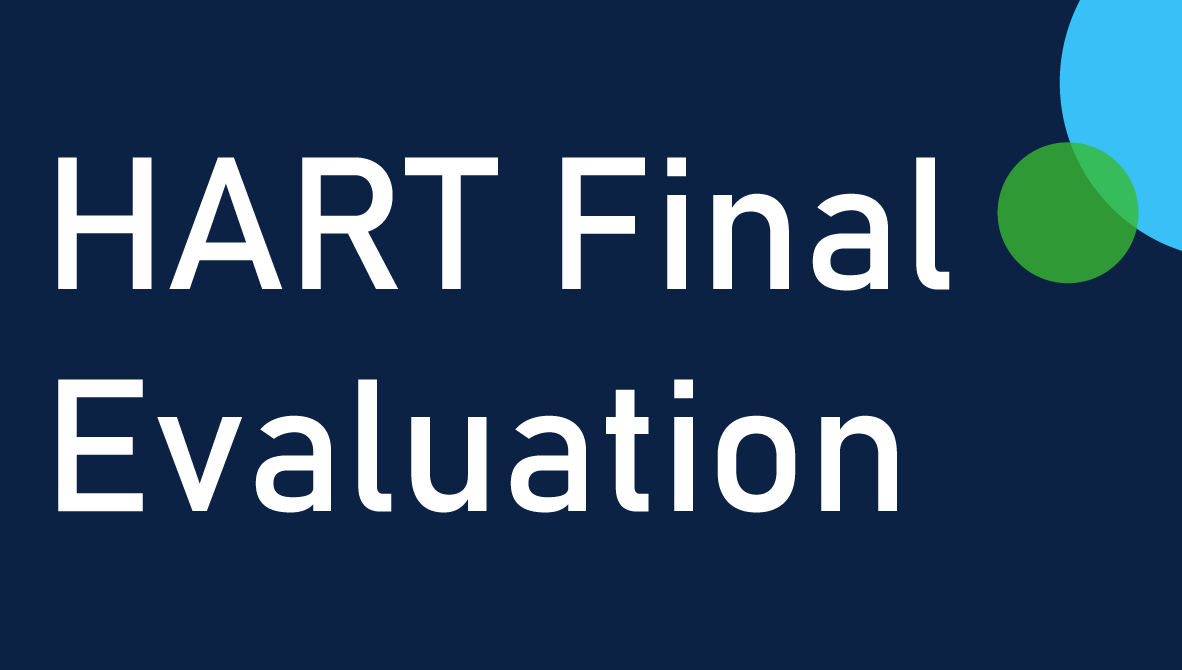The Housing Assessment Resource Tools project based at the University of British Columbia (UBC), is funded by the Canada Mortgage and Housing Corporation (CMHC) through the Housing Supply Challenge: Data Driven Round, to develop simple, replicable, comparable, evidence-based, and equity-focused tools for housing needs assessment, land assessment, and property acquisition, with the intention of improving policy outcomes at all levels of government.
Throughout our three stages, we’ve developed an evaluation framework to understand the impact of our work, and we published our final evaluation on National Housing Day (November 22) 2023.
Below you can view our Mid-way Evaluation, our Final Evaluation Report, and a summary of findings.
Finding 1: HART should continue enhancing housing needs assessments by adding new data to existing tools, developing data-supported analysis on housing gaps, and providing training.
Since the project inception, HART has directly engaged with and supported local governments and housing sector organizations to analyze and maximize data insights on housing needs by income categories, household size and priority population. HART can continue supporting local governments and organizations in finding ways to add new data in areas like homelessness, housing needs of students and those living in congregate housing, suppressed local demand and suppressed household formation, analyzing the data to showcase gaps, and providing training and education on the HNA Tool.
Finding 2: HART can directly support local governments and housing-sector organizations in developing housing needs assessments for federal funding initiatives.
There is a need for HART’s continued support in developing consistent and replicable housing needs assessments with local, provincial, and federal governments, either in line with applicable legislation or to highlight the need for provincial and/or federal governing criteria on housing needs reporting overall. HART’s disaggregated data insights (by local income categories, household sizes, priority populations) were noted as assets to develop thorough future or existing need assessments.
Finding 3: HART should be funded to create land assessments for all municipalities in Canada.
HART’s experience in developing innovative land assessments for affordable housing is a much-needed area for future research, including municipal-level land assessments that incorporate government-owned and non-profit land, and national-level land assessments of government-owned land. Provided data accessibility and resources, HART’s existing and future land assessments also have potential to be updated consistently according to strategic targets or policy changes, and to incorporate ideas for maximizing affordable housing yields.
Finding 4: HART should provide a forum for housing discourse and peer learning amongst all levels of government and other housing stakeholders.
HART’s role in facilitating and furthering housing discourse and related research at the national scale is a valuable asset that interviewees would like to see continuing beyond the funding timeline. In particular, HART’s role as a communication channel both between local governments and to higher levels of government has capacity to bridge gaps between academic research and practice, to serve as a venue for summarizing findings from local government to leverage into federal programs or policies, and to share best practices in affordable housing creation.
Finding 5: HART is ideally positioned to develop innovative research and analytical tools to integrate housing needs and land assessments.
HART’s tools and areas of expertise offer a variety of avenues for future innovative research that would build upon existing tools by integrating housing need, land assessments and property acquisition tools to develop solution-based tools for legal initiatives and housing policies, and to highlight areas for new policy development.
Finding 6: The HART project should continue to provide data-based advocacy tools, including research reports, legal briefs, opinion pieces, and presentations.
Overall, the HART project has a potentially significant future role in advancing advocacy across the housing spectrum, including data advocacy, addressing housing need with the right supply of housing, and offering solutions for affordable housing creation according to the data insights. Data advocacy encompasses both the need for inclusion of disaggregated data variables in national census surveys (e.g., homelessness, students) and data transparency on land title nationally. HART’s tools also provide direct links between housing needs and well-located land parcels to address that need, that can be leveraged by local government or organizations for funding and policies at the provincial and federal levels.










